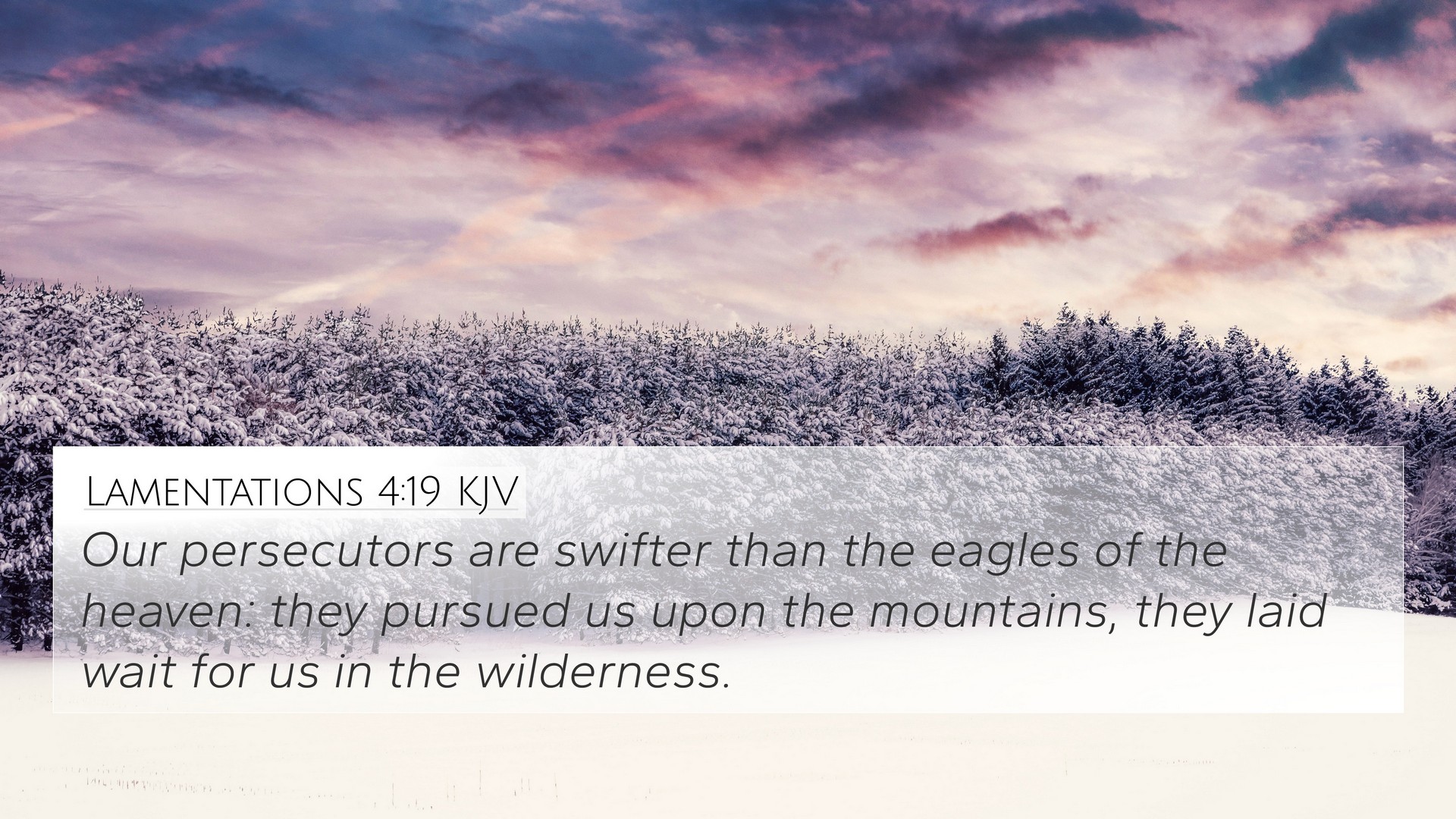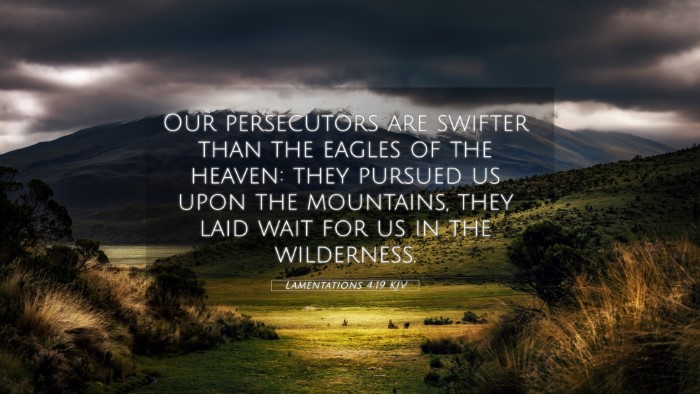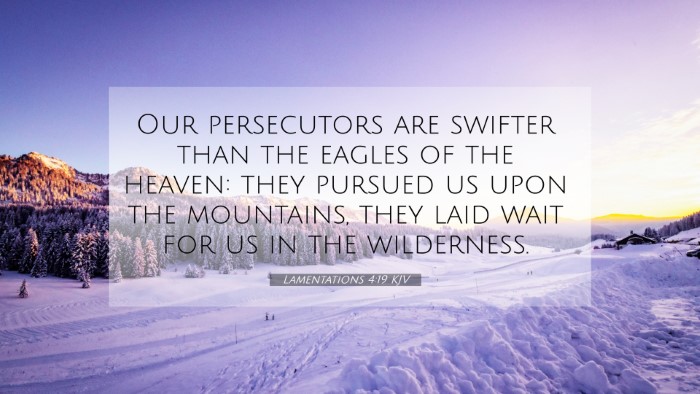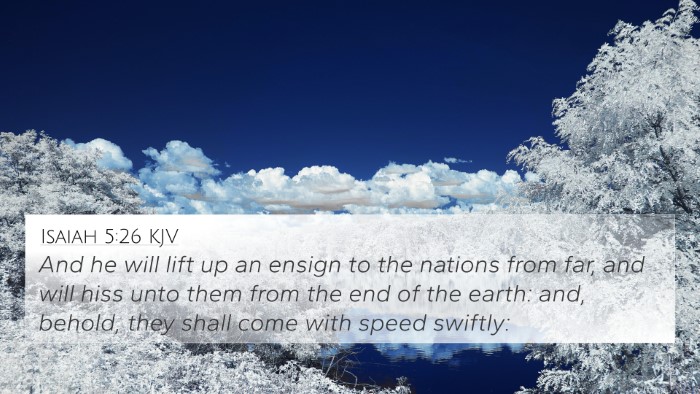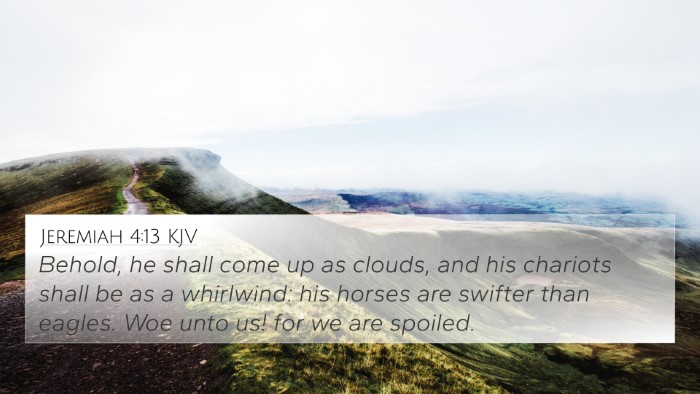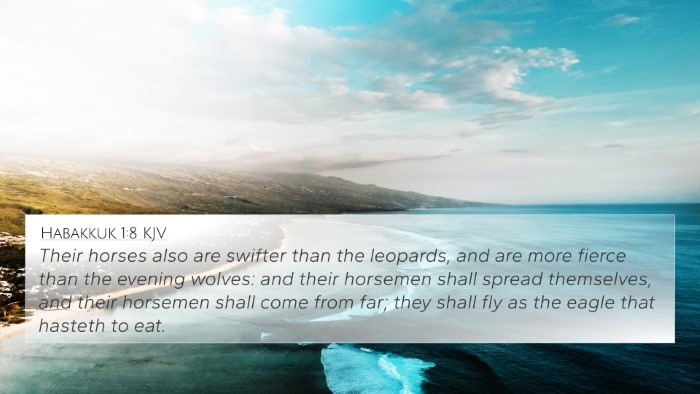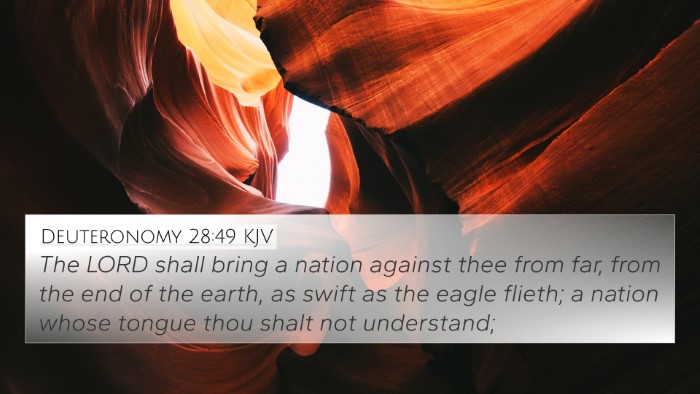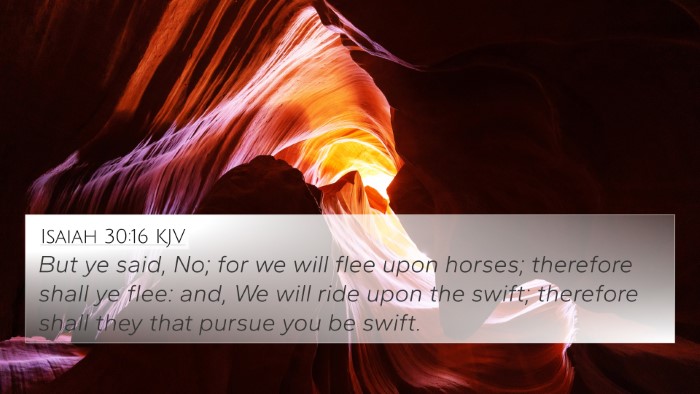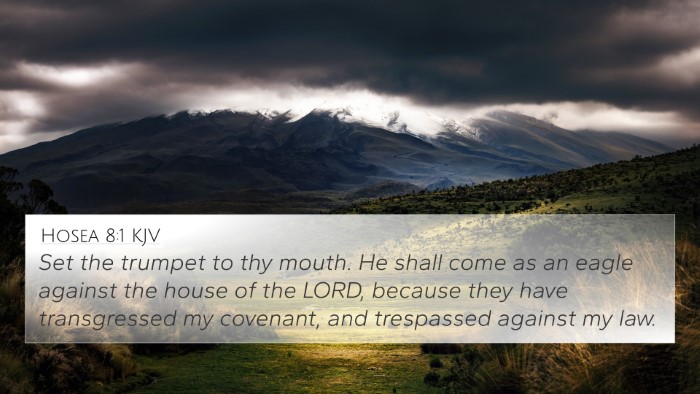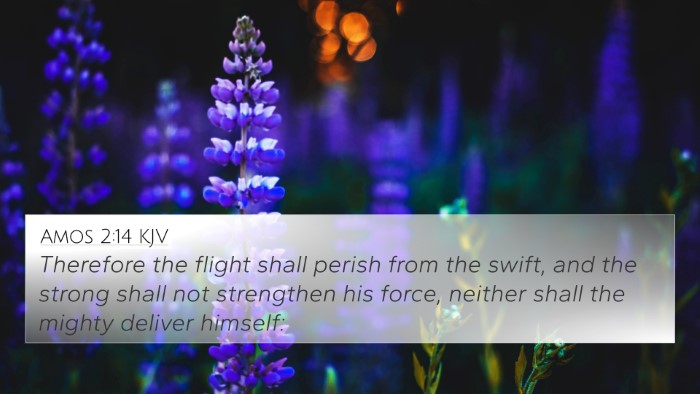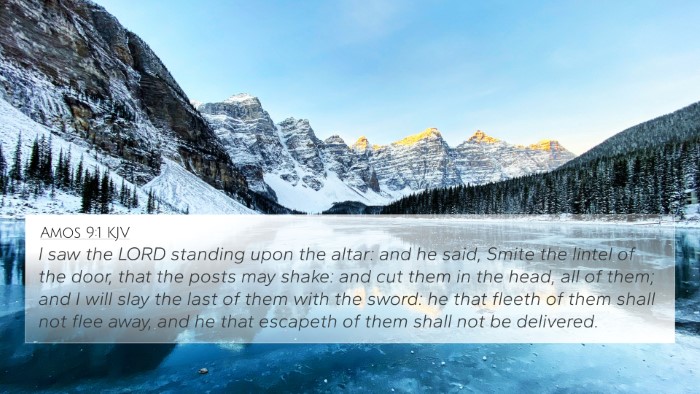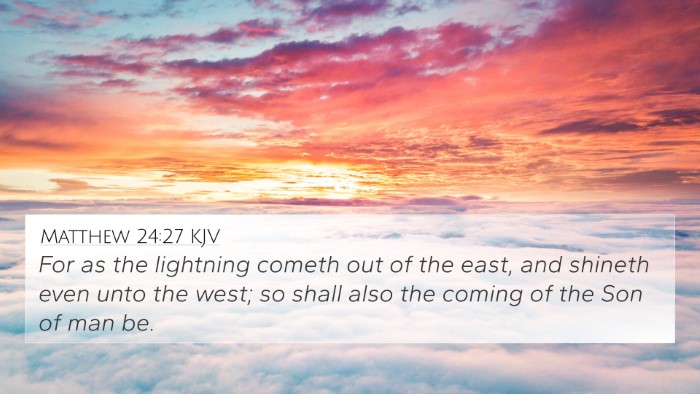Lamentations 4:19
Verse: "Our pursuers were swifter than the eagles of the heavens; they chased us upon the mountains, they laid wait for us in the wilderness."
This poignant verse speaks to the profound sorrow and the dire circumstances faced by the people of Judah during their captivity. It vividly illustrates the sense of hopelessness and despair as they find themselves pursued relentlessly by their enemies.
Summary of Meaning
The context of Lamentations 4:19 unveils the tumultuous period of the Babylonian siege of Jerusalem, where the once-proud city lay desolate, and its inhabitants were subjected to unimaginable suffering. This verse encapsulates the theme of pursuit — that of the enemies of Israel overtaking them with ferocity akin to that of eagles soaring in the sky, quick and ruthless.
Insights from Commentaries
- Matthew Henry: Henry emphasizes the overwhelming nature of the adversities faced by the people, likening their enemies to swift, predatory eagles. He reflects on their utter despair and lack of strength in the face of such relentless pursuit.
- Albert Barnes: Barnes provides an analysis of the metaphorical language, noting how the imagery of eagles signifies swiftness and danger. He underscores the bleakness of their situation, highlighting the omnipresent threat from their enemies who sought their ruin.
- Adam Clarke: Clarke interprets the verse with a focus on the emotional and psychological toll taken on the survivors. He discusses the fear and anxiety that permeated the community as they felt utterly abandoned and pursued without respite.
Cross-References to Explore
This verse can be linked to several other scriptures that reflect similar themes of pursuit, despair, and divine retribution:
- Psalms 7:1: "O Lord my God, in you do I take refuge; save me from all my pursuers and deliver me."
- Jeremiah 30:14: "All your lovers have forgotten you; they care nothing for you. I have struck you as an enemy would and punished you, because your guilt is so great and your sins so numerous."
- Micah 7:2: "The godly has perished from the earth, and there is no one upright among mankind; they all lie in wait for blood, and each hunts the other with a net."
- Isaiah 59:19: "So they shall fear the name of the Lord from the west, and his glory from the rising of the sun; for he will come like a rushing stream, which the wind of the Lord drives."
- Psalms 18:37: "I pursued my enemies and overtook them; I did not turn back till they were destroyed."
- Job 30:3: "They are gaunt from want and hunger; they gnaw the dry ground by night in waste and desolation."
- Psalms 10:8: "He sits in ambush in the villages; in hiding places, he murders the innocent; his eyes stealthily watch for the helpless."
Thematic Bible Verse Connections
The themes of pursuit, despair, and the struggle for deliverance run throughout the Scriptures, linking Lamentations 4:19 to broader biblical narratives.
- Deliverance from Oppression: In times of hardship, many biblical figures cried out for help and deliverance, paralleling the pleas in Lamentations.
- The Role of Enemies: Numerous passages discuss adversaries and their swift, merciless nature against the people of God.
Bible Study Tools and Resources
For those interested in exploring the connections between Bible verses further, utilizing tools for Bible cross-referencing can enhance understanding:
- Bible Concordance: A comprehensive tool to locate verses by specific words or themes.
- Bible Cross-Reference Guide: A system for identifying related scriptures within both testaments.
- Cross-Reference Bible Study: Methods to engage deeply with scripture through comparative analysis.
Conclusion
Lamentations 4:19 encapsulates a powerful expression of loss and pursuit in a time of crisis. By engaging with the insights from respected commentaries and exploring related scriptures, readers can gain a deeper understanding of its significance and the broader biblical themes it relates to. This understanding enriches the study of the Scriptures, revealing the interconnected nature of God's word throughout time.
